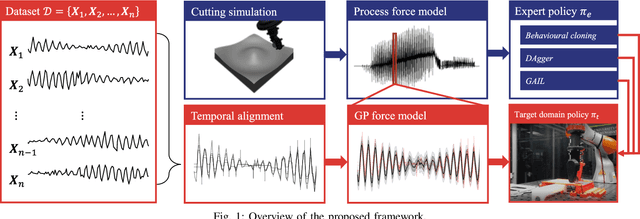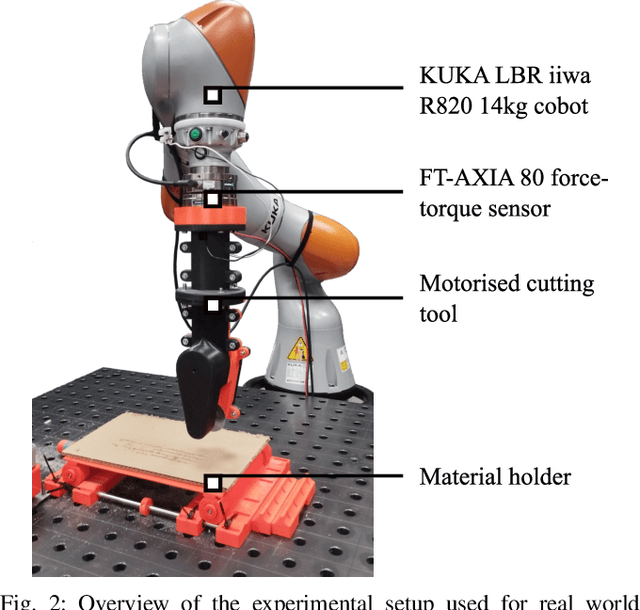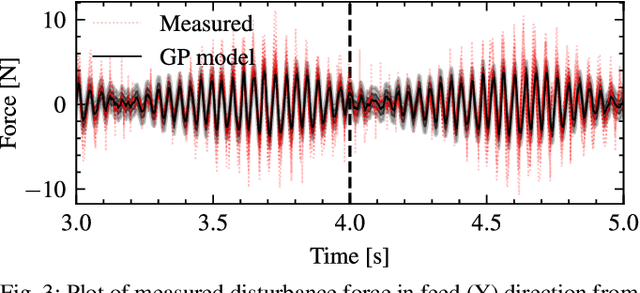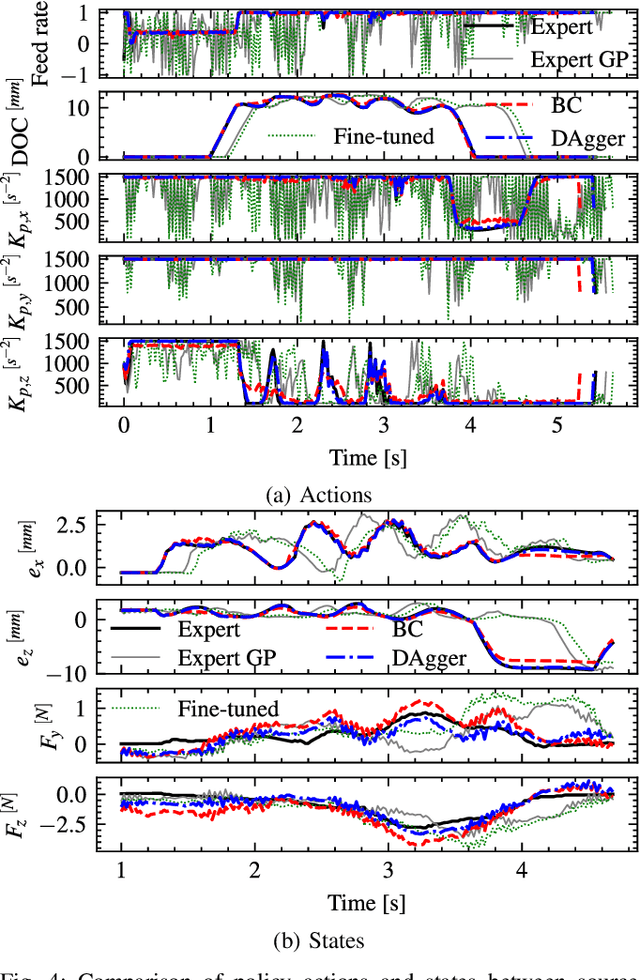Imitation learning for sim-to-real transfer of robotic cutting policies based on residual Gaussian process disturbance force model
Paper and Code
Nov 07, 2023



Robotic cutting, or milling, plays a significant role in applications such as disassembly, decommissioning, and demolition. Planning and control of cutting in real-world scenarios in uncertain environments is a complex task, with the potential to benefit from simulated training environments. This letter focuses on sim-to-real transfer for robotic cutting policies, addressing the need for effective policy transfer from simulation to practical implementation. We extend our previous domain generalisation approach to learning cutting tasks based on a mechanistic model-based simulation framework, by proposing a hybrid approach for sim-to-real transfer based on a milling process force model and residual Gaussian process (GP) force model, learned from either single or multiple real-world cutting force examples. We demonstrate successful sim-to-real transfer of a robotic cutting policy without the need for fine-tuning on the real robot setup. The proposed approach autonomously adapts to materials with differing structural and mechanical properties. Furthermore, we demonstrate the proposed method outperforms fine-tuning or re-training alone.
 Add to Chrome
Add to Chrome Add to Firefox
Add to Firefox Add to Edge
Add to Edge